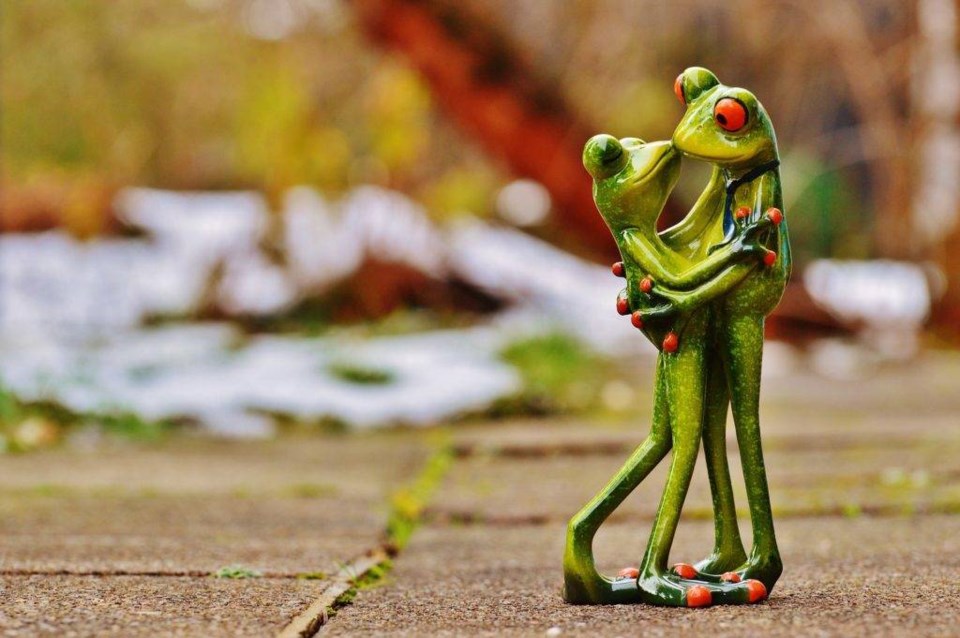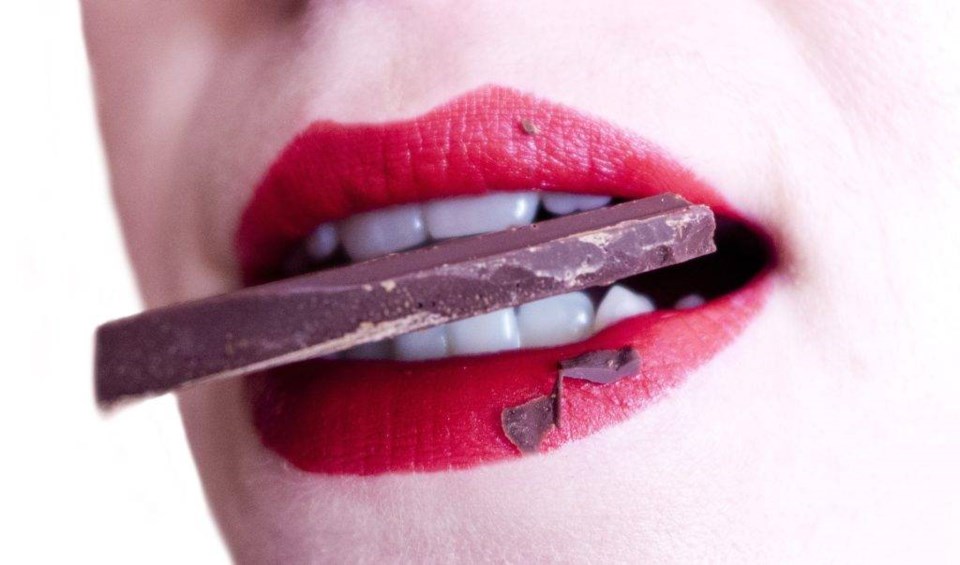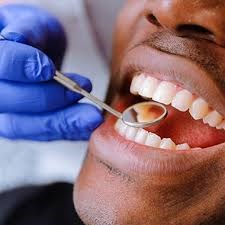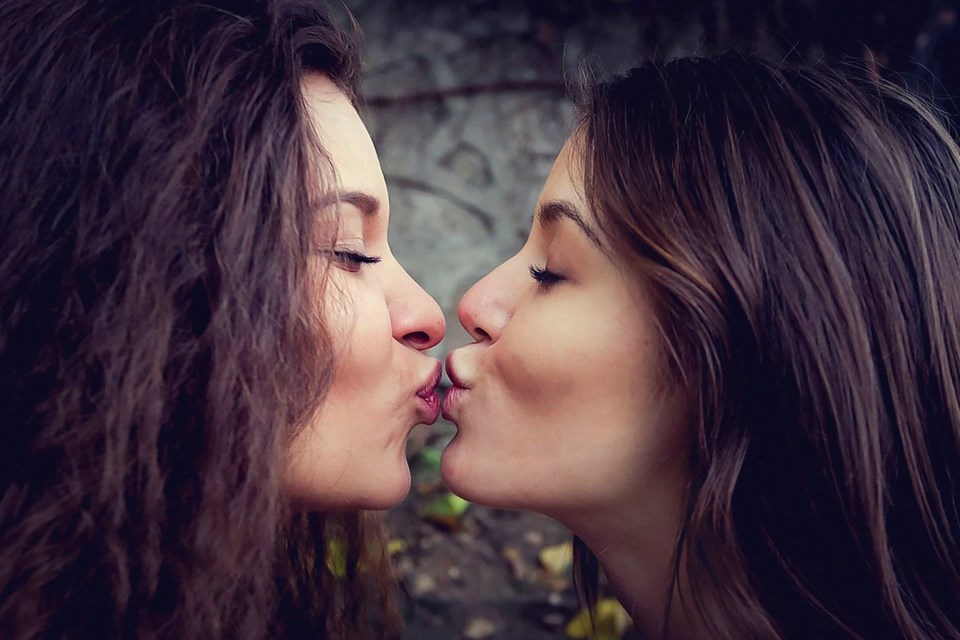So it's that time of the year again: Valentine's Day, when love is in the air and all your local shops have those irresistible bags of Hershey kisses and chocolate hearts stocked on their shelves.
Most people already know the havoc chocolate and other sugary treats can wreak on teeth. But did you know that Hershey's aren't the only kisses that cause cavities? Your partner's kisses can give you cavities too!
Yes, cavities are contagious.
According to Dr. Peggy L. Budhu, a family dentist at NYU Langone's Family Health Center at Sunset Terrace in Brooklyn, you can inherit your partner's oral health challenges, from the flora in your partner's mouth.
"When babies are born, they don't have the bacteria that causes cavities in their mouths; they actually get it from their mother," said Dr. Budhu. She gave the example of when parents hold pacifiers in their their mouths and then put in their baby's mouth, which she says is an easy way to spread bacteria in the mouth from one host to another.
"When we talk to new mothers, we talk about that, so they understand not to share utensils or other things that can spread from mouth to mouth."
That is why Valentine's day-- the biggest day for "swapping spit"-- is a also an important opportunity to offer a reality check around kissing. If you already are familiar with your partner's oral health, hopefully, you will take heed. However, if it is a new relationship and you are unsure of your partner's oral health, there are a few signs to look for:
"It's a very delicate subject, but the first thing you will notice is bad breath or halitosis," said Dr. Budhu. "As a dentist, I know the difference between halitosis related to the mouth versus the stomach or throat. But if you smell something bad, you might want to be more cautious. And say, hmmm, something is going on."

In other words, their froggy breath can become your froggy breath. Not only that, you can also inherit their oral health.
"Pink or brown gums are usually normal," she said. "But if you observe fluffy, bright red gums, that's a sign of periodontal disease or gum disease."
She added, there are daily habits people can develop to help guard their oral health, the most important being flossing.
"Start flossing daily. It's the number one thing I would recommend," she said. "Floss the teeth that you want to keep. It's a critical oral hygiene practice to use dental floss. Be gentle and don't worry about competency in the beginning, if you experience bleeding Give yourself at least 14 days to improve your technique. But flossing definitely works."
Margaret Mason, DMD, Vice President of Dental Medicine at NYU Langone's Family Health Centers offers a few more fyi's, before you indulge in all that chocolate candy:

- The bacterial flora in your mouth loves the chocolate and all those other carbohydrate filled goodies. They feed off these carbohydrates and in response produce acid which erodes the enamel (the hard outer layer of your tooth) and starts the decaying process of your teeth along with the accumulation of plaque. If decay is left untreated it continues to spread into the inner layers of your teeth (dentin) and progresses into or close to your nerve which cause toothaches, sensitivity, pain and discomfort.
- If your sweet tooth does kick in and you can't resist, make sure you brush your teeth 15-20 minutes after you're done indulging. It is very important to brush and floss thoroughly. Chewing sugarless gum throughout the day helps with the flow of saliva. Rinsing with over the counter antimicrobial mouthwashes is another way to stay fresh.
- Another insightful tip, only kiss your partner if his/her microflora is healthy. WHAT DOES THAT MEAN? According to the American Dental Association, someone with an unhealthy mouth has unhealthy bacteria which can be transferred to you. Cavities are contagious, so kiss at your own risk!
Dr. Budhu pointed out the benefits of oral health to overall body health, particularly cardiovascular health:
"Periodontal disease and gum disease is highly correlated with diabetes, heart health and low birth weight babies," she said. "Part of the syndrome of diabetes affects gum health because the small capillaries don't work the same. Most people don't connect the two, because they don't connect dentistry as medicine.

"That's why we work very intimately with our pediatric department to get them over to the dental. And some of our patients we send to other medical departments. It's really an intermingling relationship we have with our medical department, and I think it works."
Addressing your oral health on Valentine's Day just might be the sweetest treat you give yourself.
And for incentive, the Sunset Terrace Family Health Center in Brooklyn on February 14 will be handing out free oral hygiene packs for you and your significant other.
Pucker up!




